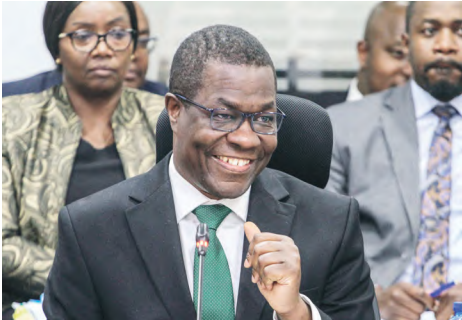

Kenya will seek a mix of Public Private Partnerships and development
partners funding to boost its electricity infrastructure after the collapse
of the Adani deal, Energy CS Opiyo
Wandayi has indicated.
He said the ministry is also taking a second shot at the lifting of the moratorium on Power Purchase Agreements (PPAs), to increase production and distribution ahead of next year’s launch of the regional power trade under the Eastern Africa Power Pool (EAPP), that allows cross-border transmission and trade in energy among the 13 member states.
President William Ruto during his State of the Nation address in November ordered the immediate termination of an initial planned Adani Group Sh260 billion deal on modernisation of the Jomo Kenyatta International Airport.
The President also directed the cancellation of a Sh96 billion contract between the Kenya Electricity Transmission Company (Ketraco) and Adani Energy Solutions to build and operate power transmission lines and substations in Kenya, for a period of 30 years.
The deal included four transmission lines: Gilgil-Thika-Malaa-Konza ( 400kV line that would span 208.73 km), Rongai-Keringet-Chemosit ( 220kV line that would cover 99.98 km) and Menengai-Ol Kalou-Rumuru, which was a 132kV line that would be 89.88 km.
It also included two substations-Lessos (a 400/220kV substation) and Thurdibuoro which was designed to be a 132/33kV substation.
The deal was intended to address Kenya’s power blackouts and boost the country’s power capacity.
Wandayi did not confirm or deny whether an official cancellation has been made but said the country must invest in upgrading its energy infrastructure and strengthening grid stability.
“One of the focus area since I was sworn in was enhancement of the quality of our infrastructure stretching from generation, distribution transmission. We are working with relevant partners in terms of addressing the gaps,” Wandayi said.
He said the ministry has developed several funding models that it will deploy including Public Private Partnerships.
“We shall continue to explore PPPs in terms of strengthening and improving our power infrastructure,” the CS said during a media briefing ahead of the Eastern Africa Power Pool - Regional Trade Conference 2024 set for Mombasa next week.
KEY PARTNERS
Some of the development partners with interest in Kenya’s energy sector include Power Africa, a public-private partnership led by the US government that provides financing, grants, and technical assistance to support the development of the energy sector.
Others are African Trade and Investment Development Insurance (ATIDI), a Pan-African institution that provides political risk insurance to companies, investors, and lenders interested in doing business in Africa, World Bank, German Development Bank (KfW), European Investment Bank (EIB), United Nations Development Programme (UNDP) and United Nations Environmental Programme (UNEP).
Japanese International Cooperation Agency (JICA), United Stated Agency for International Development (USAID) African Development Bank (AfDB), International Finance Corporation (IFC) and Department for International Development (DFID) have also been keen on Kenya’s energy development, giving the country a wide pool of development partners.
Meanwhile, the CS has said his ministry will take another shot at having MPs lift the moratorium on Power Purchase Agreements.
Cabinet in February last year lifted the moratorium on procurement of fresh Independent Power Producers that had been put in place by former President Uhuru Kenyatta’s administration, in 2021, to allow vetting of existing IPPs and the Power Purchase Agreements.
The National Assembly however blocked the lifting of the ban as it sought to conduct its own inquiry on the PPAs and find a way to lower power bills, with a shot at having the freeze lifted in October failing.
“We are in constant consultation
with the National Assembly through the departmental committee on
energy on mechanisms to have this
moratorium lifted, to enable us as
a country to enter into new PPAs
as a way of increasing our energy
generation capacity,” Wandayi said.





